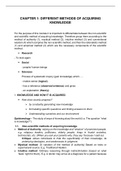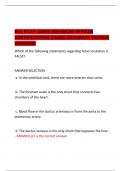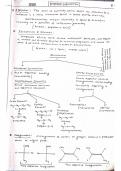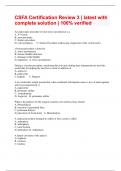Zusammenfassung
Summary Psychology 243 Student Summaries (Pass with Distinction)
- Kurs
- Hochschule
- Book
The Psychology 243 Student Summaries, cover context from the textbook and the lectures. These notes contain examples that will assist you with passing the module cum laude.
[ Mehr anzeigen ]








